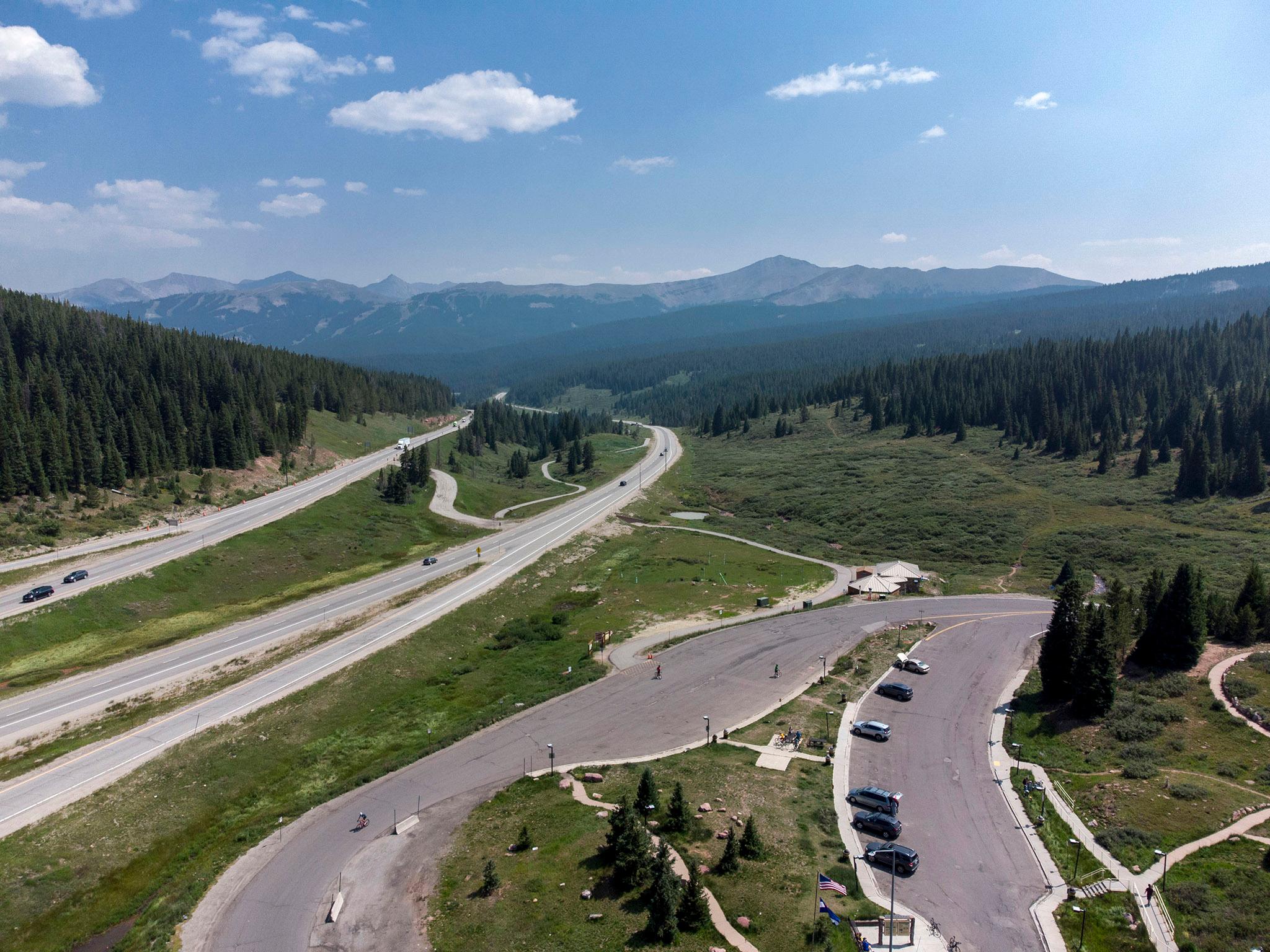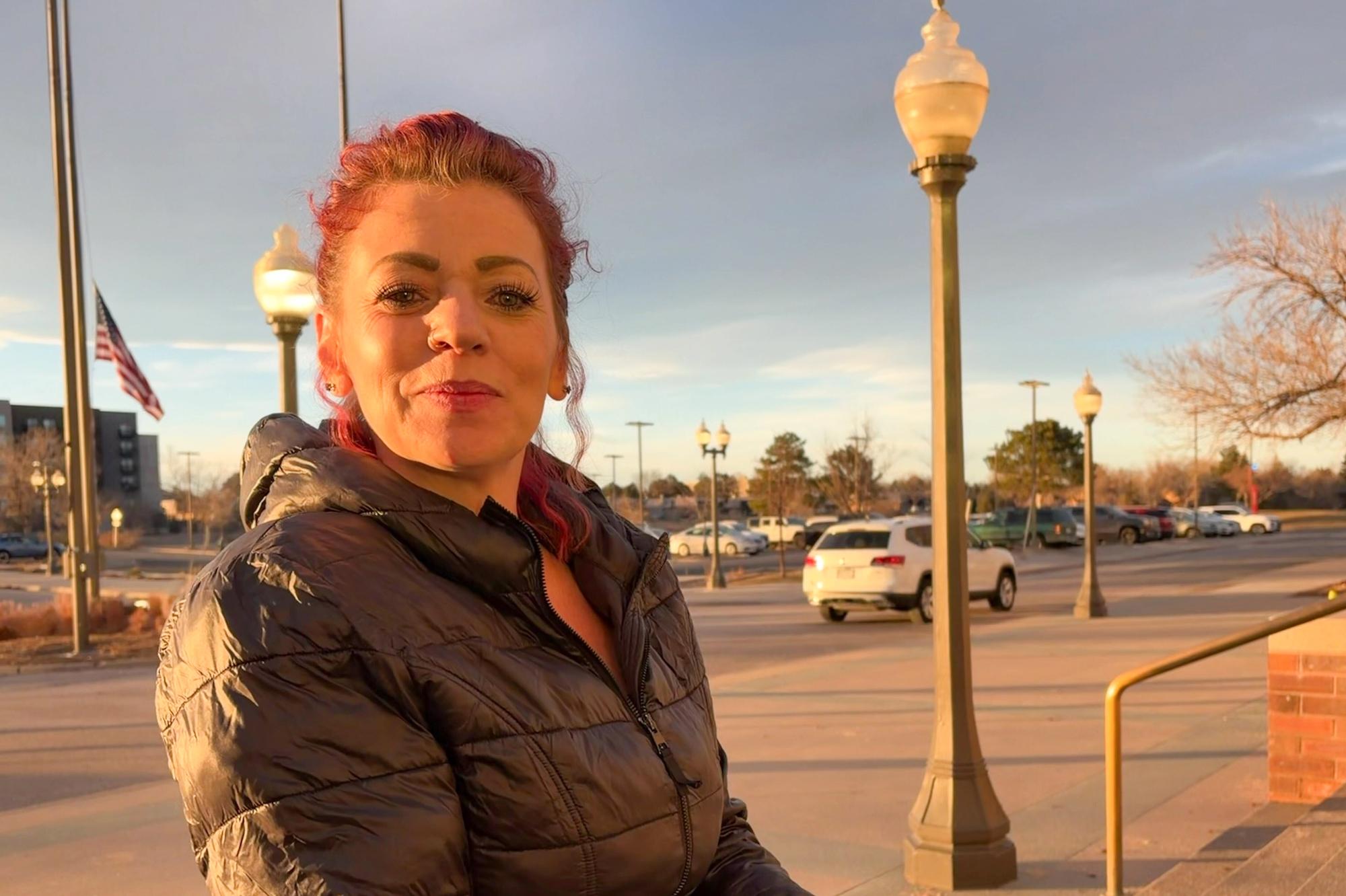
Colorado’s state and local governments would need to consider, measure and potentially offset the climate-warming effects of transportation projects under a draft rule the state Department of Transportation released Monday.
Transportation is one of the largest contributors of greenhouse gas emissions in both Colorado and the U.S. A rapid conversion to electric vehicles is one major way the state wants to reduce emissions. A change in the type of infrastructure built is another.
“What we build in the transportation sector matters,” CDOT Executive Director Shoshana Lew said in an interview, adding: “It can't just be about making the cars cleaner.”
Under the draft rule, CDOT and the state’s five metropolitan planning organizations would need to estimate the total pollution and greenhouse gas emission impacts of their future transportation projects.
If the total emissions do not fit within a set budget, the releases would have to be offset through cleaner projects like new transit service, bicycle and pedestrian infrastructure, and local zoning decisions that result in more density.
The state “shall restrict the use of certain funds,” if the emissions budgets aren’t met, the draft rule says.
CDOT wrote the rule after months of meetings with local governments and other stakeholders, Lew said.
“This is intended to kind of change the way all of us do business,” she said, describing the proposed rule as an attempt to thread a needle between environmental and economic needs.
The rule comes as the climate crisis worsens, and two environmental groups offered their cautious support
“The urgency of our need to act on climate change in the transportation sector is just staring us in the face,” she said, citing historic mudslides in Glenwood Canyon that closed Interstate 70 for more than two weeks and wildfire smoke- and ozone-choked air along the Front Range. “I think all of these things coming together remind us of how timely this is and how much we need to act with urgency.”
Two environmental groups cautiously lauded the proposed rule and said it comes at a crucial time for the state transportation agency.
The climate crisis is worsening, a new United Nations report said last week, and CDOT is set to receive billions of dollars in new funding from the state and a likely “firehose” of new money from the federal government.
“They could spend it widening freeways by another lane, futilely chasing after congestion relief,” said Carter Rubin, a California-based transportation technical strategist at the Natural Resources Defense Council. “Or they could invest in complete networks of mobility that allow people to get around their states by foot or bike or public transit in a way that matches the mobility they can have in their cars.”
The proposed rule could be a “game changer,” said Matt Frommer, senior transportation associate at the Boulder-based Southwest Energy Efficiency Project.
“We can't really continue to just invest in highways and interchanges and sprawl,” Frommer said.
The new rule could create tension with local governments over road expansion projects
The rule could cause some friction between local governments that want certain projects built and the state, which would be in the position of enforcing the emissions budgets.
Holly Williams, an El Paso County Commissioner who sat on CDOT’s greenhouse gas emission advisory group, said recently that the rule could delay road expansion projects.
“That just keeps more cars on the road,” she said in an El Paso County Commission meeting in May. “That doesn’t stop greenhouse gases emissions, because everybody is sitting there in a congested road.”
Williams has not yet responded to a request for comment.
While expanded roads can fit more vehicles, research suggests they also encourage more drivers to use them. That can undermine the goal of reduced congestion and can lead to higher emissions.
Still, Lew said, CDOT will continue to expand roads where it deems that necessary.
“[The rule] should force us to think long and hard about how we do it, what it looks like and how we mitigate,” Lew said.
The agency is planning a new transit service on I-70 as it also plans to expand that road near Idaho Springs, for example.
The state Transportation Commission will consider public comments on the proposed rule through Oct. 15 before voting at its November meeting.









